Micron Buys AI Startup; Claims Fastest SSD
Article By : Echo Zhao
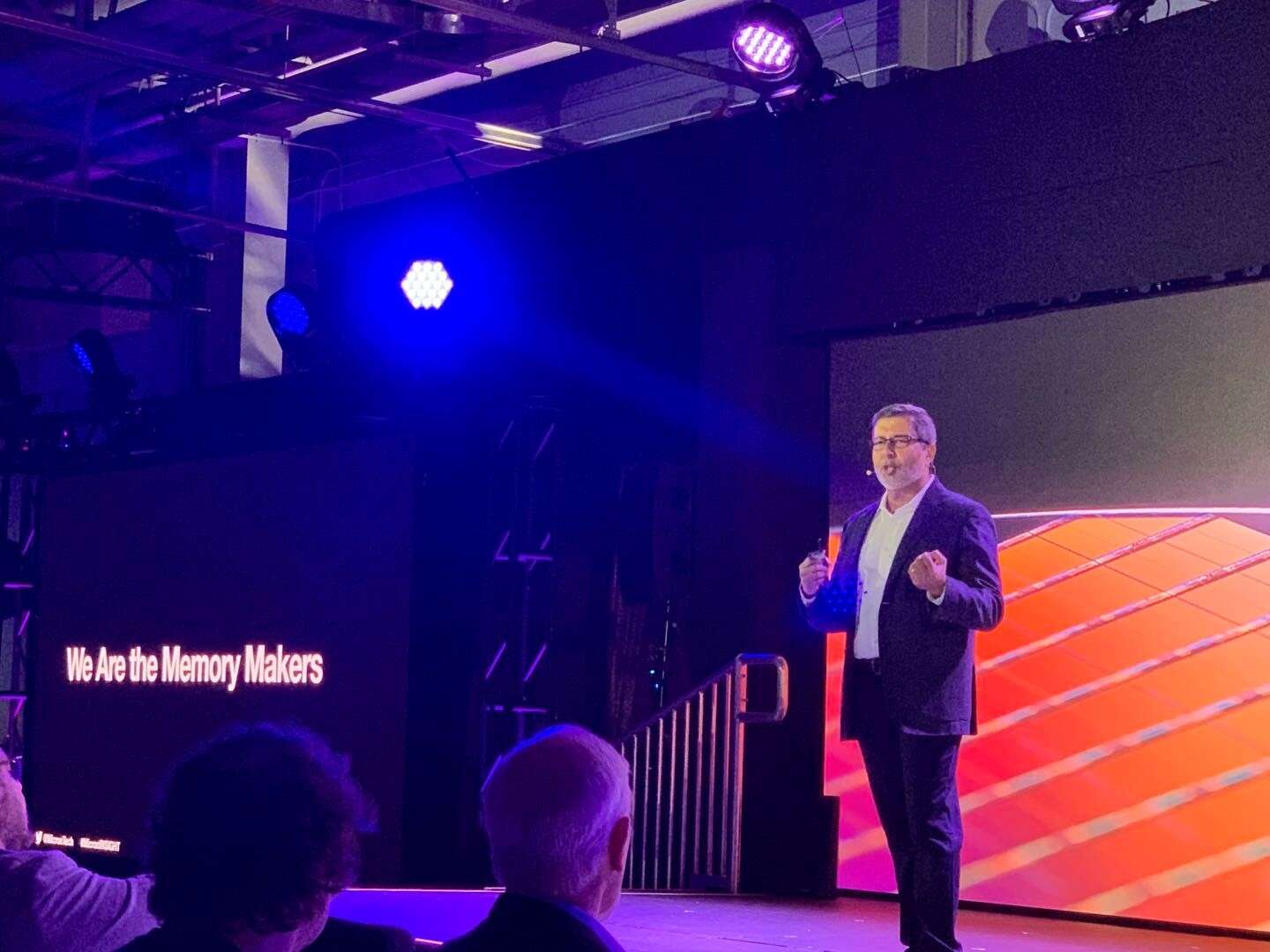
The company introduced a zippy new SSD based on 3D XPoint technology. It also announced the purchase of neural network startup FWDNXT at its Micron Insight event.
Micron Technology introduced what it claims is the world’s fastest solid state drive (SSD), and also announced the acquisition of FWDNXT (pronounced “forward next”), a startup that specializes in neural networking with a product lineup that includes a series of inference engine modules based on Xilinx FPGAs.
The announcements were made at the Micron Insight conference held at Pier 27 in San Francisco. The conference focused on how to accelerate intelligent systems by improving data access and analysis speed in edge devices.
Recommended
This article a translation of an article that originally appeared in EE Times China:
Micron Insight 2019亮点:从3D XPoint SSD到AI平台、安全即服务平台
Micron CEO Sanjay Mehrotra said in his opening remarks at the conference that the company shipped 6 million wafers (including DRAM/3D XPoint/NAND) in fiscal year 2019, which translates into roughly 3 billion solutions for game systems, mobile phones, Internet of things applications, smart factories, and more.
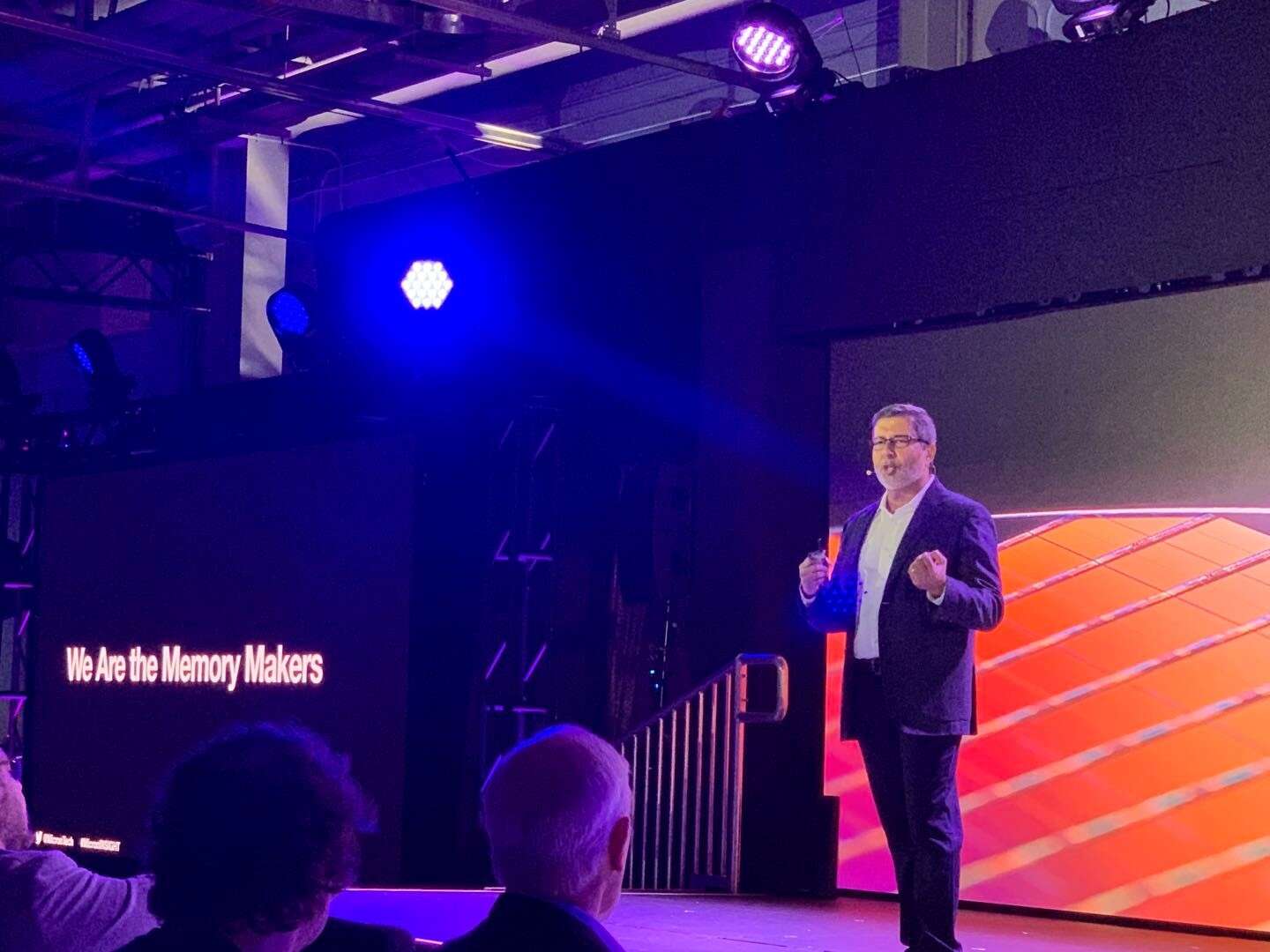
Sanjay Mehrotra
Sumit Sadana, executive vice president and chief commercial officer of Micron, then unveiled several heavyweight products at the conference.
Known as the world’s highest speed SSD X100
The X100 SSD is the first solution in the Micron product line for data center storage and other memory-intensive applications. Based on 3D XPoint technology, the product introduces a new level in the storage hierarchy, with greater capacity and better durability than DRAM, and higher endurance and performance than NAND.
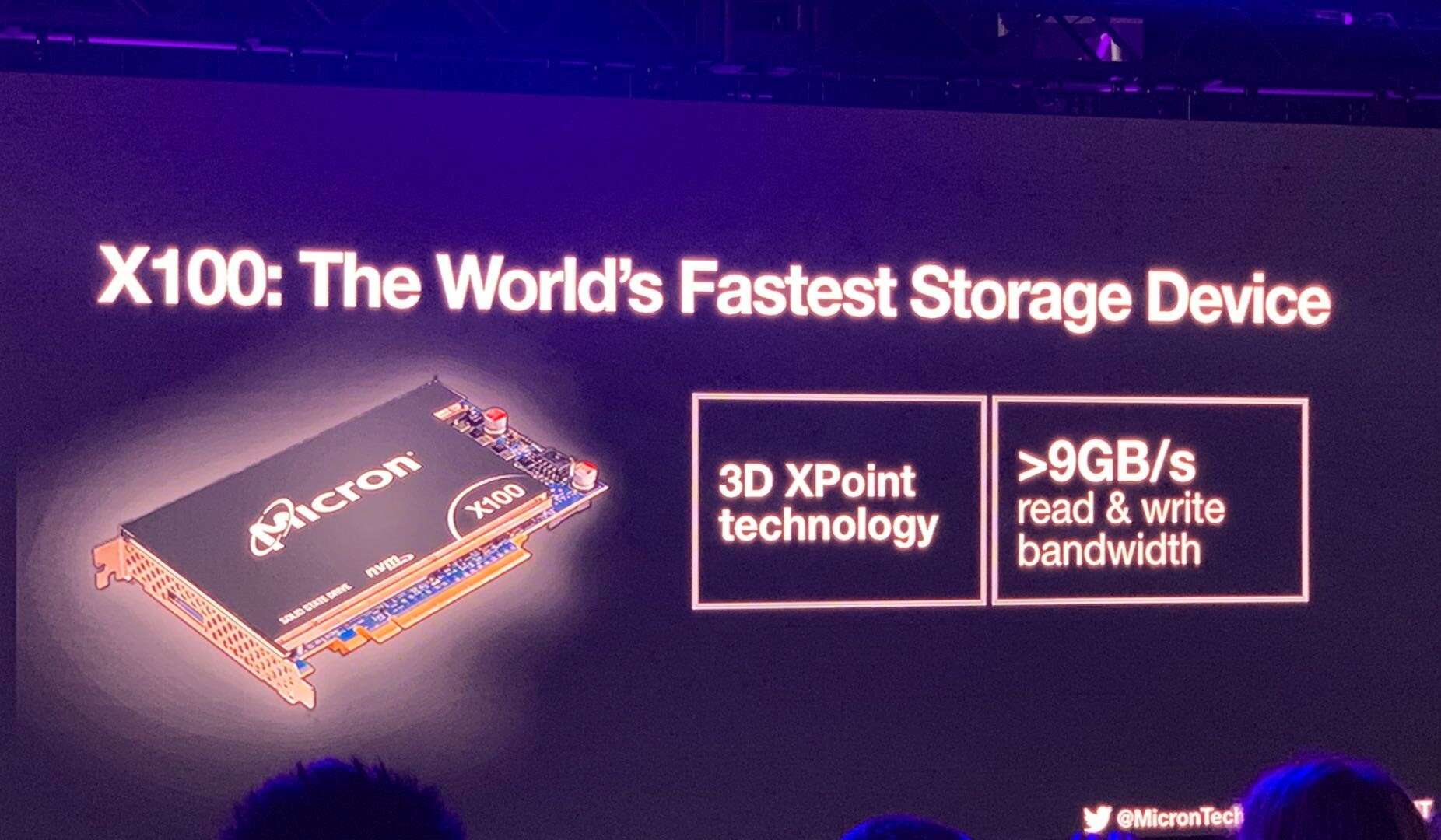
The typical performance parameters Micron claims for the X100 are as follows:
- High-performance local storage — Up to 2.5 million read and write operations per second (IOP), significantly faster than current competing SSDs
- Ultra-high-speed bandwidth — bandwidth over 9GB/s in read, write, and read-write hybrid modes, significant faster than current competing NAND
- Ultra-low latency — provides consistent read and write latency, significantly better than NAND SSDs
- Application acceleration — significantly improves end-user experience for a wide range of applications with large data center workloads
- Small body , high performance — improves performance without over-provisioning storage
- Easily adopted — because the Micron X100 SSD uses the standard NVMe interface, all the benefits of the product can be obtained without any changes to the software
The company said it will provide samples of the X100 SSD to some of its customers this quarter.
Crucial X8 portable SSD enters consumer market
The Crucial X8 Portable SSD has a read speed of up to 1,050MB/s, which is 1.8 times faster than the same type of portable SSD at the same price point, 7.5 times faster than a portable hard drive and up to 1TB.
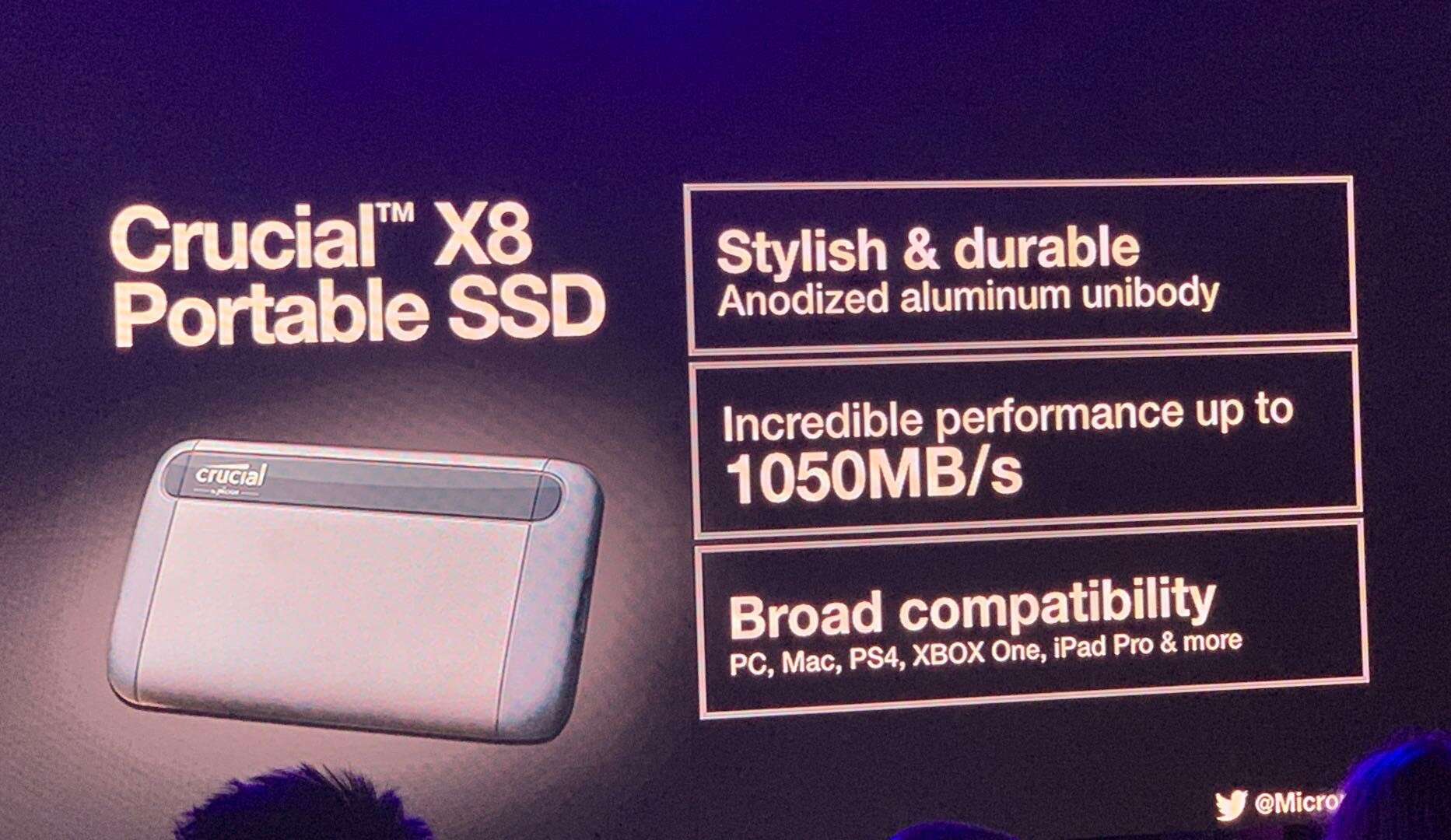
The X8 is compatible with a wide range of devices including PC, Mac, PS4, Xbox One, iPad Pro, Chromebook and some Android devices.
Before the launch of the market, the X8 had thousands of hours of pre-launch verification and a large number of SSD technical indicators tested, which can be protected from falling down to 7.5 feet.
7300 Series and 5300 Series based on 96-layer 3D TLC NAND
Both SSDs are based on industry-leading 3D NAND technology.
Micron presented the 7300 Series NVMe SSD as ideal for mainstream NVMe flash in data centers for multiple virtualization, I/O-sensitive workloads, and high-throughput environments such as AI. This product series is designed to reduce power consumption for enterprise cloud customers.
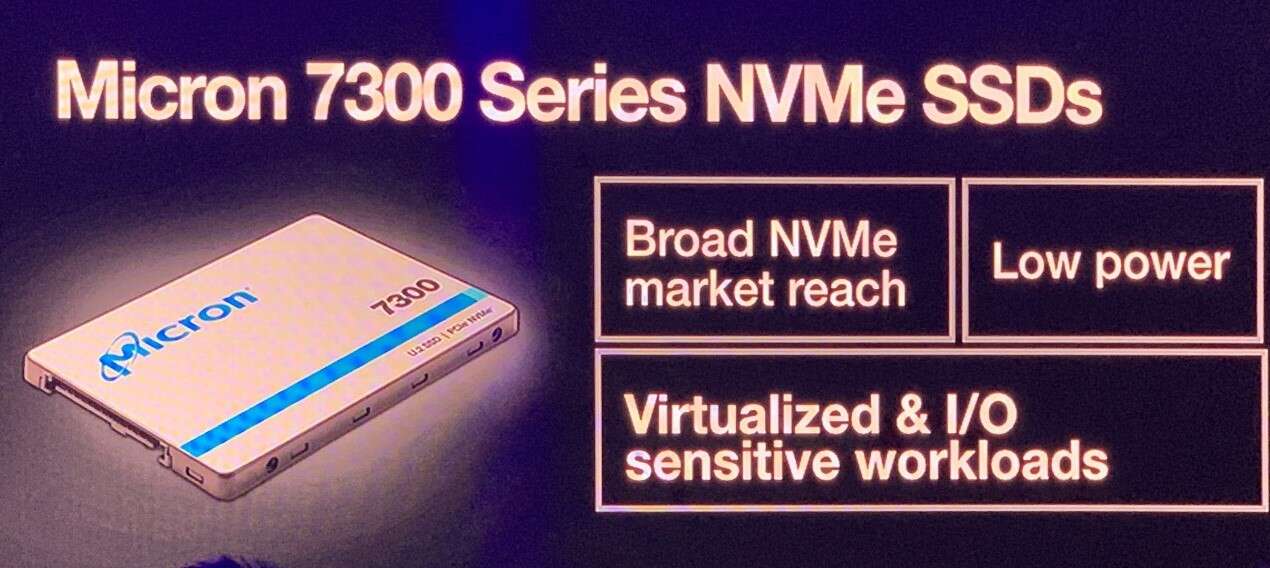
The 5300 Series SATA SSD family is designed to provide greater security and reliability. Micron claimed it is the industry’s first enterprise-class SATA SSD built on 96-layer 3D TLC NAND. It expands the company’s broad SATA portfolio. Micron claims the line has the industry’s leading performance in meantime between failure.
Comprehensive artificial intelligence development platform
The conference not only launched storage products, but also introduced a set of hardware and software tools for deep learning applications.
This platform stems from the acquisition of hardware and software startup FWDNXT. Based on this acquisition, Micron integrates computing, memory, tools and software into the comprehensive artificial intelligence development platform, which also provides an important cornerstone for exploring innovative memory optimized for artificial intelligence workloads.
Sadana said FWDNXT’s machine learning inference engine development and neural network algorithms, combined with Micron’s expertise in memory, unlock new features and capabilities to help innovate the most complex and demanding edge applications.
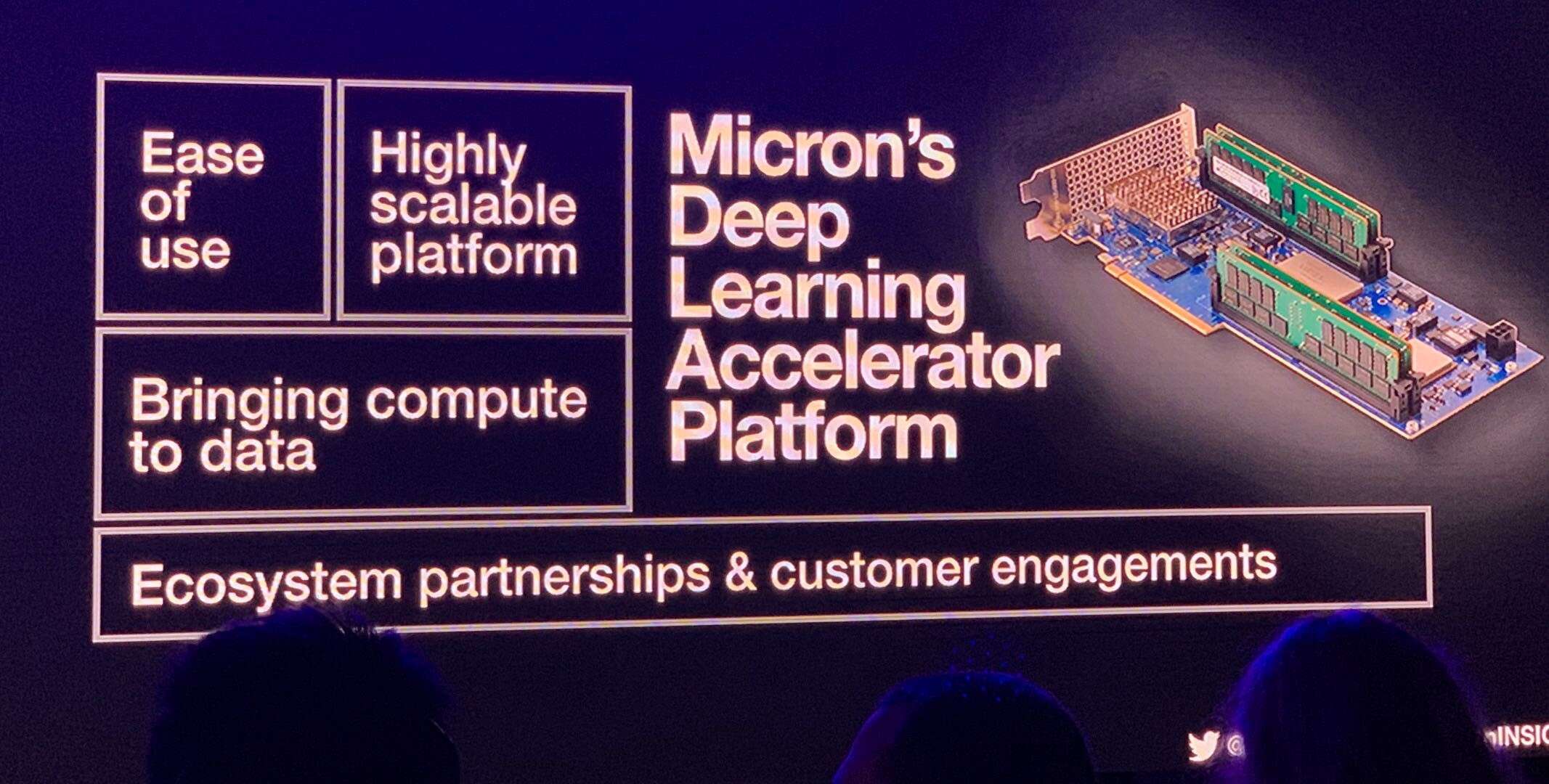
The combination of FWDNXT’s artificial intelligence inference engine and Micron’s Deep Learning Accelerator (DLA) technology is expected to provide Micron with tools to observe, evaluate, and ultimately innovate, enabling tighter integration of memory and computing for higher performance with lower power consumption. DLA technology provides an easy-to-use programming software platform that supports a wide range of machine learning frameworks and neural networks, as well as the ability to quickly process massive amounts of data through an easy-to-use interface.
Industry’s first silicon-based security-as-a-service platform
The Authenta Key Management Service (KMS) platform is the industry’s first silicon-based security-as-a-service platform to protect IoT edge devices and provide a cloud-first deployment model for the industrial and automotive industries.
Devices that support Authenta can be opened through cloud services, alleviating the challenges and complexities of protecting devices in the “Internet of Everything” environment.
Authenta KMS and its trusted hardware root embedded in NAND and NOR flash devices enable OEMs to protect device functionality from the silicon level, providing a solid foundation for early source and traceability enabled for supply chain and trusted device services.
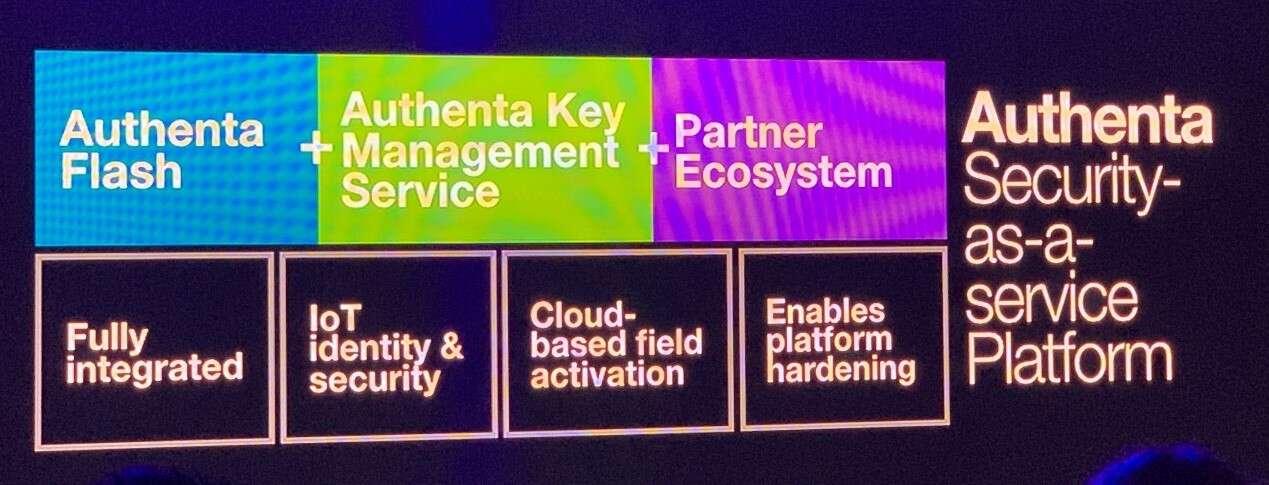
— Echo Zhao is Chief Analyst of Aspencore China
Subscribe to Newsletter
Test Qr code text s ss


